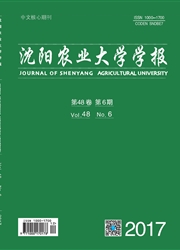

 中文摘要:
中文摘要:
为科学决策城市水资源优化配置,合理确定城市拟建多水源的开发时序,实现水资源的可持续利用,促进经济社会的可持续发展。在"经济—水资源—社会"复合系统框架下,以城市供水效益最大、水利投资最小、区域缺水量最小、城市绿地面积持续增长等为目标,以城市供水水源供水量为决策变量,以水源地可供水量、最大取水能力、用水户需求、中水回用、生态需水等为约束条件,遵循资源、环境与经济社会协调发展的战略原则,构建水资源优化配置区间多目标非线性模型,提出了求解该模型的免疫遗传算法,并将其应用于葫芦岛市。结果表明:城市多水源的开发时序必须以不同经济社会发展速度的需水为前提,才能使有限的水资源与经济、社会环境相协调,实现城市经济社会与环境的可持续发展。
 英文摘要:
英文摘要:
In order to make a scientific decision for urban water resources optimal allocation, it needs to reasonably determine the developing sequence of multiple water resources in a city, to achieve sustainable utilization of water resources and promote the sustainable development of economy society. To establish interval multi-objective nonlinear model of water resources optimal allocation, we put forward immune genetic algorithm and apply it in Huludao under the framework of "Economy-Water Resource- Society" (EWS) system, while taking maximum effects of supplying water, minimum water conservancy investment, minimum of regional water shortage and sustainable growth of grassland as objectives, taking available water supply of water resource area, maximum water capacity, demand of water user, reuse of recycled water and ecological water requirement as constrain conditions, taking harmonious development among resource, enviromnent and economy society as strategic principles. The results showed the developing sequence of urban multiple water resources was on the condition of the water demand in different development speeds of economy society. It could make the limited water resources and economic and social environment coordination and realize sustainable development of urban economy society and environment.
 同期刊论文项目
同期刊论文项目
 同项目期刊论文
同项目期刊论文
 期刊信息
期刊信息
